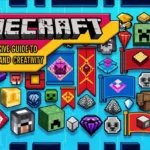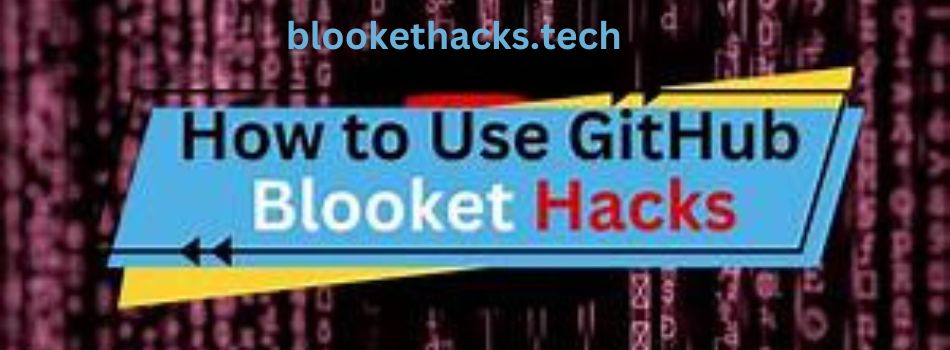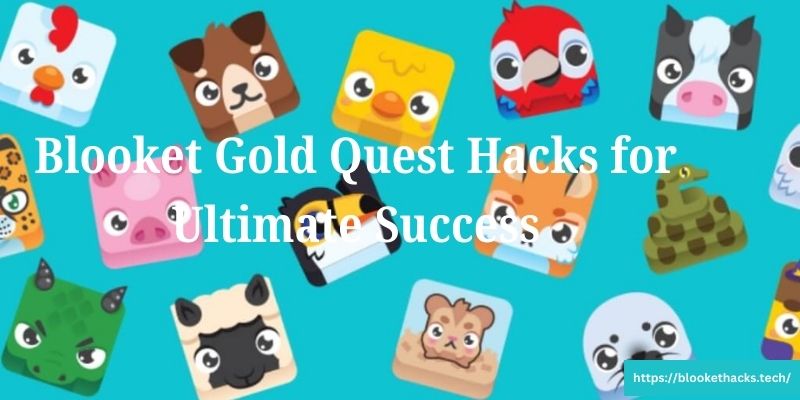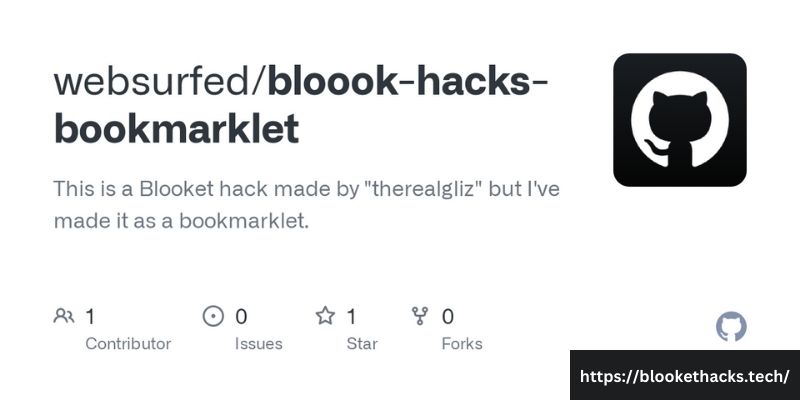GitHub Blooket Hacks: Game-Changing Tips for Next-Level Learning
Revolutionising Learning through Gamification
Blooket has evolved as a dynamic and engaging platform in the ever-changing field of education technology, capturing students and educators with its creative approach to learning. Blooket’s fundamental concept is to integrate gamification principles with educational content effortlessly, transforming traditional classes into immersive and interactive experiences. Discover ingenious GitHub Blooket Hacks to enhance your learning adventures. Customize themes, create custom game modes, and collaborate with ease for an unparalleled Blooket experience
What is Blooket?
Blooket is an online platform that allows educators to build, customize, and distribute instructional games for their pupils. It provides various game forms and content options to appeal to disciplines and learning purposes, such as reviewing important ideas, reinforcing knowledge, and generating curiosity.
Blooket stands out for its straightforward interface and user-friendly design, which make it accessible to educators of all backgrounds and ability levels. With a few clicks, teachers may create engaging game-based exercises that encourage active involvement and deeper student learning.
Reason for Blooket’s Growing Popularity
One reason for Blooket’s growing popularity is its capacity to attract and motivate students. Blooket turns monotonous chores into exhilarating challenges by incorporating competition, collaboration, and rewards into the learning process, kindling students’ excitement and propelling them to success.
Furthermore, Blooket encourages personalized learning experiences by allowing educators to modify games to their student’s specific requirements and preferences. Blooket enables educators to design dynamic learning environments that suit individual learning styles by altering difficulty levels, combining multimedia content, and offering immediate feedback.
Blooket is not only a classroom application but also a thriving community hub where educators worldwide can share ideas, resources, and best practices. This collaborative spirit encourages creativity and invention, resulting in ongoing improvement and expansion of the platform’s capabilities.
Blooket promotes a paradigm shift in education, where learning goes beyond traditional textbooks and lectures and embraces gamification’s immersive and interactive possibilities. As students begin their educational journey with Blooket, they gain knowledge and develop vital skills such as critical thinking, problem-solving, and cooperation, creating the groundwork for lifetime learning and success.
Overview of GitHub: Enabling Collaboration in Code Development.
Collaboration is essential in the software development process. Enter GitHub, a robust platform that transforms developers’ collaboration to create, share, and innovate on code projects. At its core, GitHub is a central hub for hosting, managing, and collaborating on code repositories, allowing developers to optimize processes, manage changes, and maximize the power of collective creativity.
What Exactly is Github?
GitHub is a web-based platform that supports version control and source code management (SCM), allowing developers to easily store, organize, and share their code projects. Founded in 2008, GitHub has become the go-to destination for millions of engineers worldwide, providing diverse features and tools to improve productivity and collaboration.
At the heart of GitHub is the concept of Git, an open-source distributed version control system allowing developers to track codebase changes across time. Git is GitHub’s backbone, allowing users to easily create branches, make adjustments, and merge changes while keeping a complete history of revisions.
Extensive Collaboration Capabilities
One of GitHub’s most notable features is its extensive collaboration capabilities. GitHub allows developers to collaborate on real-time code projects, whether working on a tiny project or contributing to a considerable open-source effort. GitHub’s capabilities, including pull requests, problems, and code reviews, enable transparent communication, quick feedback loops, and seamless integration of contributions from numerous collaborators.
Furthermore, GitHub provides many tools and connectors to streamline the development process. GitHub offers project management tools such as GitHub Projects and GitHub Actions and continuous integration (CI) and deployment (CD) pipelines to let developers build, test, and deploy code with confidence.
Beyond its value to individual engineers and teams, GitHub creates a thriving and inclusive community of contributors, enthusiasts, and advocates. Through programs such as GitHub Education, GitHub Sponsors, and community forums, GitHub fosters a learning, sharing, and collaboration culture, which drives innovation and advancement throughout the worldwide developer ecosystem.
In essence, GitHub is more than just a code hosting platform; it is a catalyst for collaboration, innovation, and collective improvement in software development. When engineers use GitHub to collaborate on coding projects, they not only accelerate the pace of invention but also form important connections and friendships that cross geographical and cultural boundaries.
GitHub Blooket Hacks: Improve Your Blooket Experience with These Tricks and Tips
Customising Blooket Themes & Visuals using GitHub
Explanation
GitHub allows you to change the appearance and feel of your Blooket games by altering CSS (Cascading Style Sheet) files.
Example:
- CSS
Step-by-step instructions
- Fork Blooket’s GitHub repository.
- Locate the CSS files for the theme you wish to customize.
- Make the desired adjustments to the CSS code.
- Commit and submit your modifications to the forked repository.
- Deploy your custom theme using GitHub Pages or another hosting service.
Creating Custom Blooket Game Modes and Features
Explanation
GitHub lets you enhance Blooket’s functionality by creating custom game modes or features using JavaScript.
Example:
- javascript
Step-by-step instructions:
- Fork Blooket’s GitHub repository.
- Create a custom game mode or feature in Javascript.
- Integrate your code with the Blooket source code.
- Test your custom game mode locally.
- Send a pull request to the central Blooket repository for review and inclusion.
Enhancing Blooket Games using External Resources or Integrations
Explanation
With GitHub, you may enhance Blooket games by integrating external resources such as APIs or databases.
Example:
Step-by-step instructions
- Determine which external resource or integration you want to add to your Blooket game.
- Create the appropriate code to interface with the external resource (for example, using the JavaScript retrieve API).
- Integrate the code into the appropriate sections of the Blooket source code.
- Test the integration to confirm it works as intended.
- Submit your improvements to Blooket’s GitHub repository for review and incorporation.
Using GitHub to Collaborate on Blockchain Projects with Other Users
Explanation
GitHub’s collaboration tools, such as pull requests and problems, make collaborating with others on Blooket projects simple.
Example
- Create an issue to talk about a new feature or a bug.
- Fork the Blooket repository, make your modifications and submit a pull request for evaluation and approval.
Step-by-step instructions
- Fork Blooket’s GitHub repository.
- Create an issue to discuss the changes or features you want to work on.
- Fork, branch, and change the codebase in collaboration with other users.
- Send pull requests to the central Blooket repository for review and integration.
- Participate in code reviews and conversations to improve your efforts.
Advantages of Using GitHub for Blooket: Increasing Collaboration and Innovation
GitHub is a powerful platform for implementing hacks and customisations in Blooket. It provides numerous benefits that improve the development process and stimulate user participation.
Version Control
One of the significant advantages of utilizing GitHub for Blooket hacks is version control. With Git at its foundation, GitHub allows developers to track changes to their codebase over time, resulting in a complete history of revisions. This feature is handy for introducing customizations or experimenting with new features in Blooket because it allows users to revert to previous versions if necessary, significantly reducing the danger of breaking modifications.
Collaboration tools
GitHub has extensive collaboration tools that allow users to work seamlessly together. Pull requests, bugs, and project boards enable developers to easily communicate, review, and incorporate changes to Blooket projects. This collaborative workflow improves the development process, speeds up iteration cycles, and guarantees that contributions from many users are effectively managed and included.
Code Sharing and Discovery
GitHub is a centralized repository for sharing and discovering code, making it an excellent place for Blooket users to display their hacks and customizations. By open-sourcing their projects on GitHub, individuals may contribute to the larger Blooket community, share their breakthroughs, and inspire others to build on their work. Furthermore, GitHub’s search and discovery features make it simple for users to uncover existing Blooket hacks, tutorials, and resources, encouraging a culture of knowledge sharing and collaboration.
Community Engagement
GitHub promotes a lively and inclusive community of developers, educators, and hobbyists, creating a welcoming environment for Blooket users to interact, collaborate, and learn from one another. Users can connect with like-minded people, seek help with their projects, and participate in collaborative activities to expand Blooket’s capabilities through forums, talks, and social coding events. This sense of community encourages users to experiment with new ideas, propose novel solutions, and contribute to Blooket’s continued progress as a gamified learning platform.
In summary, using GitHub to develop Blooket hacks has numerous advantages, including robust version control, seamless collaboration features, and chances for code sharing and discovery. Blooket users can leverage these benefits to improve their development productivity, connect with the larger community, and promote innovation in gamified learning experiences.
Step-by-Step Tutorial for Creating Custom Blooket Game Modes and Features
Objective
- Use JavaScript to add custom game modes or features to Blooket.
1. Fork the Blooket repository
- Visit the Blooket GitHub repository at https://github.com/blooket-playground/blooket.
- Click the “Fork” button in the top-right corner to save a copy of the repository to your GitHub account.
2. Clone the forked repository to your local machine
- Open the terminal or command prompt.
- Use the following command to clone the forked repository:
- Bash
- Navigate to the cloned repository directory.
3. Create a new JavaScript file for your game mode:
- Build a new JavaScript file for your unique game mode in the src directory of the cloned repository.
- Name the file descriptively, such as lightningRound.js.
4. Write Your Custom Game Mode Logic in JavaScript.
- Open the freshly created JavaScript file in a text editor.
- Write JavaScript code for your custom game mode, including gaming logic, rules, and features.
- For inspiration and direction, check out Blooket’s existing game modes.
5. Integrate Your Custom Game Mode into the Blooket Source Code.
- Open the games.js file from the src directory.
- Add your custom game mode JavaScript file to the top of the games.js file.
- Add your unique game mode to the gameCodes object’s list of available modes.
6. Test your custom game mode locally:
- Start a local development server and test your unique game mode in a web browser.
- Use the Blooket UI to choose and play your game mode.
- Ensure that the gaming mechanics and features work as planned.
7. Commit and push your changes:
- Once you’re satisfied with your custom game mode, save your changes in the text editor.
- In the terminal/command prompt, prepare your changes for commit.
- Include a descriptive note when you commit your modifications.
- Push your modifications to the forked repository on GitHub.
8. Create a Pull Request.
- Navigate to your forked repository on GitHub.
- Click the “New Pull Request” button.
- Compare the changes in your forked repository to the original Blooket repository.
- Submit a pull request describing your modifications and why they should be included in the central Blooket repository.
9. Awaiting Review and Merge:
- Wait for the Blooket repository’s maintainers to review your pull request.
- If approved, your new game mode will be integrated into the central Blooket repository and available to all users.
Best practices and tips for efficiently integrating GitHub with Blooket:
Organize your code repositories.
- Create distinct repositories for each Blooket project or customization to keep your codebase organized.
- Give your repositories clear and descriptive names to make recognizing their purpose and content more accessible.
- Make your repository directories logical, combining relevant files and resources for more straightforward navigation.
- Write clear documentation:
- Document your code thoroughly to provide context and assistance to other developers who may work on or use your projects.
- Each repository should include a README.md file that contains instructions for installing, configuring, and utilizing your Blooket customizations.
- Use Markdown syntax to cleanly structure your documentation and improve readability with headings, lists, and code snippets.
Follow the Coding Standards and Best Practices:
- Use consistent coding conventions and style guidelines to ensure readability and uniformity throughout your codebase.
- Use descriptive variable names, comments, and function/method documentation to make your code more intelligible and manageable.
- When creating custom game modes or features, consult Blooket’s official documentation and guidelines to ensure compatibility and consistency with the platform.
Use Branching and Pull Requests for Collaboration
- Create feature branches for each new development task or bug repair to separate changes and allow concurrent work.
- Submit pull requests to integrate your feature branches into the main branch, allowing colleagues to inspect the code and provide input before integration.
- Assign reviewers to pull requests and actively participate in code reviews to guarantee that contributions are high-quality and correct.
Engage with the Blooket community
- Join Blooket-related forums, communities, and social media groups to meet other users, exchange ideas, and get help with your projects.
- Contribute to open-source Blooket repositories on GitHub by reporting bugs, adding features, or improving documentation.
- Participate in hackathons, coding challenges, and collaborative projects to learn from others, demonstrate your abilities, and help Blooket evolve as a platform.
- Stay up to speed with changes and updates.
- Keep an eye on the official Blooket GitHub source for announcements, releases, and platform updates.
- Keep your forked repositories in sync with the upstream Blooket repository so that you can incorporate the most recent changes and improvements.
- Subscribe to relevant channels, newsletters, or RSS to remain current on Blooket development’s new features, best practices, and community events.
By following these best practices and guidelines, you can efficiently use GitHub for Blooket development, collaboration, and community interaction, eventually improving your experience as a user and contributor. Also, read about blooket hacks.
Conclusion: Unleash your creativity using GitHub Blooket Hacks.
In this post, we’ve looked into the intriguing world of GitHub Blooket hacks, discovering many ways to customize, create, and interact inside the Blooket ecosystem. From customizing themes and visuals to developing bespoke game modes and features, GitHub provides many tools and approaches for taking your Blooket experience to the next level.
By leveraging GitHub’s version control, collaboration tools, and code-sharing capabilities, users may explore and experiment, transforming Blooket into a personalized canvas for gamified learning experiences. Whether you’re a seasoned developer looking to push the limits of possibility or a curious enthusiast looking to dabble and explore, GitHub has the platform and resources to fuel your creativity and innovation.
As you begin your GitHub Blooket hacking journey, remember to follow best practices, properly document your projects, and connect with the active Blooket community for help and inspiration. Whether contributing to open-source projects, collaborating with other developers, or embarking on solo customization projects, GitHub is your gateway to limitless possibilities in gamified learning.
So what are you waiting for? Dive into the world of GitHub Blooket hacks, unleash your creativity, and discover the limitless customization choices waiting for you. Whether you’re improving old games, creating new experiences, or working with peers to push the frontiers of creativity, GitHub gives you the power to determine Blooket’s future and transform how we learn and play.












